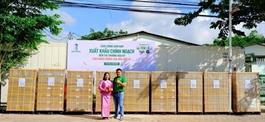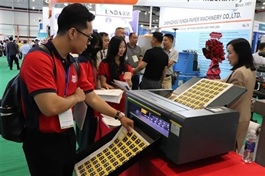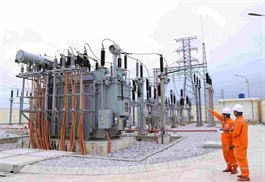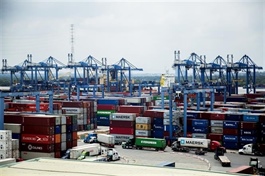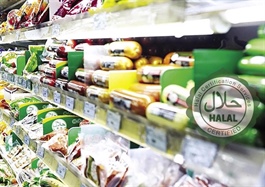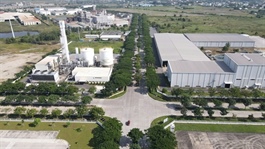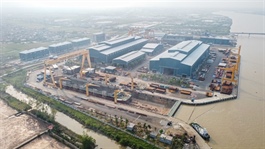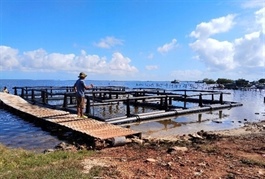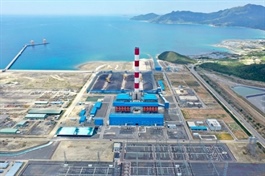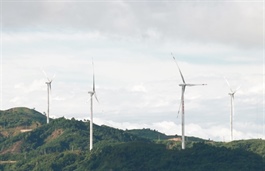Vietnam poised to lead in circular textiles with Syre
Vietnam poised to lead in circular textiles with Syre
Swedish firm Syre is setting its sights on Vietnam, aiming to establish the world’s first high-tech circular textile hub in the country.
On April 25, Syre signed an MoU with the south-central province of Binh Dinh, which lays the groundwork for establishing Syre’s first giga-scale recycling plant in the province. This follows Syre’s $100 million Series A funding round in 2024, during which Vietnam was shortlisted for its strategic position within the textile supply chain, a vibrant industry history, and access to know-how.
The MoU formalises cooperation between Binh Dinh and Syre, focusing on key criteria for the plant’s development – proximity to industrial parks and infrastructure, availability of green energy, feedstock supply, and a pilot mechanism allowing the import of recyclable textile materials from surrounding countries.
Syre CEO Dennis Nobelius said, “With its strong manufacturing base and commitment to sustainability, Vietnam is the ideal location for us to scale circular textile production globally. Syre’s model integrates fiber regeneration technology, waste collection systems, and supply chain transparency to drive the industry towards a low-impact, fully circular model.”
In a meeting in Hanoi on April 23, Syre’s leadership presented their plans to Prime Minister Pham Minh Chinh.
Syre chairwoman Susanna Campbell said, “We are grateful and encouraged by the strong support expressed by the Vietnamese government. Syre has an ambition to support Vietnam in its green transition and as a global leader in the circular textile industry. The partnership with Binh Dinh province will, with the right conditions in place, be a great opportunity to jointly lead the shift.”
Syre envisions establishing several gigascale textile-to-textile recycling plants globally over the next decade. Each facility, designed to produce 100,000-250,000 metric tonnes of high quality PET chips annually, is expected to generate up to 600 jobs, spanning skilled manufacturing, technical experts, and operational support staff.
This development aligns with a broader global trend reshaping the textile industry. Major markets such as the EU and the US are enforcing stricter environmental and social standards, demanding greener supply chains and sustainable sourcing. Brands are now prioritising suppliers that can deliver on these expectations, including fiber recycling, carbon footprint reduction, and the adoption of eco-friendly dyeing technologies.
Vietnam’s textile and garment industry, ranked among the world’s top three exporters, has long relied on large-scale, low-cost manufacturing. But as environmental standards tighten, there is growing recognition that traditional outsourcing models need to evolve.
Le Tien Truong, chairman of Vietnam National Textile and Garment Group, noted, “Circularity is fast becoming the new standard. Without it, access to key markets will be increasingly limited.”
Syre’s entry into Vietnam reflects not only the evolving textile sector, but also the broader wave of green foreign investment flowing into the country. Across industries, Vietnam is attracting capital from investors prioritising sustainable, high-tech operations, particularly from Sweden and other Nordic countries renowned for their leadership in environmental innovation. Syre is among a growing number of firms seeking to leverage Vietnam’s strong industrial base while aligning with global sustainability goals.
While Syre’s investment marks a significant milestone, challenges remain. Transitioning from traditional linear production to circular models requires substantial upgrades in technology, workforce skills, and infrastructure.
“We are creating a system where waste is not an end, but a beginning,” Campbell said. “This is about reshaping the industry and building resilience for the future.”
- 10:50 08/05/2025




